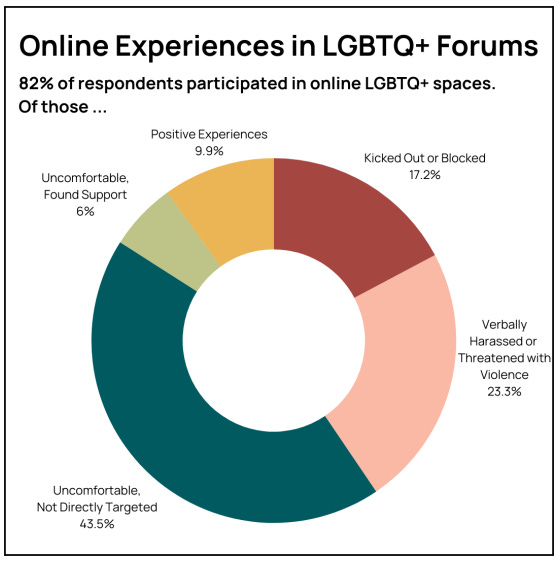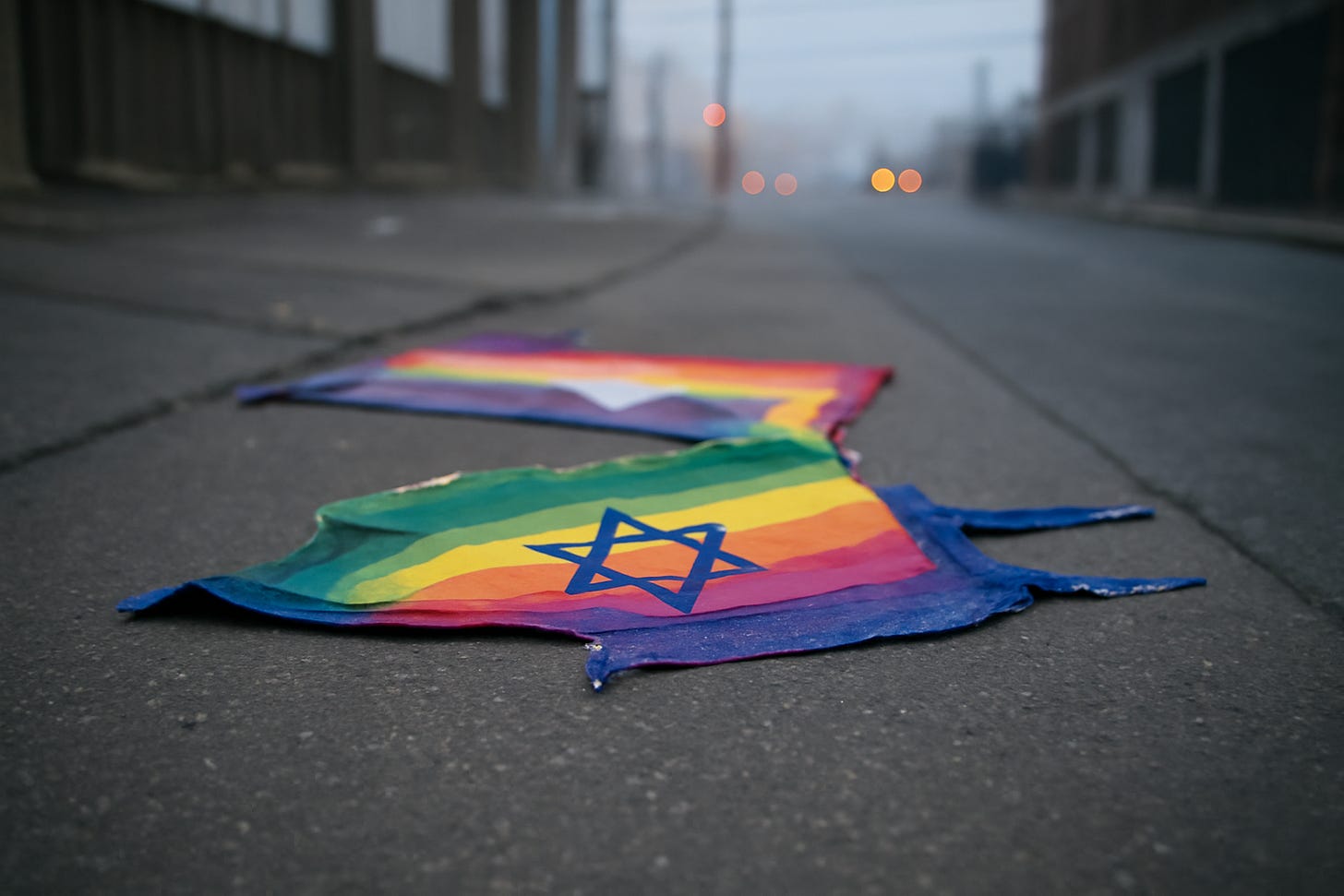New Poll: 67% of Visibly Jewish LGBTQ+ Experience Antisemitism, 82% Face Online Harassment
Published by Eshel in partnership with A Wider Bridge, the 'Antisemitism Amplified' report highlights a rise in antisemitism against LGBTQ+ Jews, especially after Oct 7, both online and in person
The intersection of antisemitism and LGBTQ+ identity is a troubling reality that has recently garnered attention. A new poll titled Antisemitism Amplified, published by Eshel in partnership with A Wider Bridge, reveals the alarming rise of antisemitism among LGBTQ+ Jews, particularly since the October 7th, 2023 Hamas attack on Israel. The survey found that LGBTQ+ Jews are experiencing even higher rates of antisemitism than the already record-breaking levels faced by the general Jewish population, both online and in physical spaces.
Key Findings
The survey, which gathered responses from 328 LGBTQ+ Jews in the United States, paints a concerning picture. One-third of respondents reported regularly wearing Jewish symbols, and those who were visibly Jewish were more likely to experience antisemitism. Sixty-seven percent of these respondents reported facing antisemitic incidents, such as verbal harassment and social exclusion. This compares to 42% of the general Jewish population who feel unsafe wearing Jewish symbols in public, according to a recent survey by the American Jewish Committee (AJC).
The report highlights a particularly disturbing trend in online spaces. While 44% of Jews across the general population report feeling unsafe sharing their views on social media, the number skyrockets among LGBTQ+ Jews. A staggering 82% of those in LGBTQ+ online communities faced some form of harassment, ranging from being kicked out of spaces to verbal abuse and threats of violence. Furthermore, 43% of respondents reported disengaging entirely from LGBTQ+ online spaces due to these hostile environments.

Migration to Jewish Spaces
In response to the hostile climate in LGBTQ+ spaces, a significant number of respondents have shifted toward Jewish spaces for support. Over 40% of the participants reported increasing their participation in Jewish gatherings, both in-person and online. This migration suggests that LGBTQ+ Jews are seeking safety and community in spaces where they can express their Jewish identity without fear of harassment.
"I've pretty much left all of the queer / trans pages I was previously on, and either replaced them with local pages that are well moderated, or Jewish themed instead.”
— Anonymous survey respondent
Antisemitism in LGBTQ+ Communities
While the report focuses on the experiences of LGBTQ+ Jews in the United States, other incidents suggest that antisemitism in LGBTQ+ spaces is a broader issue that extends to other Western countries. Last week, Keshet UK, a prominent British LGBTQ+ Jewish advocacy group, withdrew from the London Pride parade due to concerns over the safety of Jewish participants. Keshet UK had requested antisemitism awareness training for event stewards, but these requests were reportedly rejected by Pride in London organizers. This refusal reflects the broader struggle for safety and inclusion that LGBTQ+ Jews continue to face, even within spaces that are meant to be inclusive and welcoming.
As Keshet UK’s spokesperson remarked, “Pride should be a space for all of us—including those whose identities are both Jewish and queer.” The refusal to ensure the safety of Jewish participants at Pride underscores the need for LGBTQ+ events to take antisemitism seriously and take proactive measures to protect Jewish LGBTQ+ individuals.
"I was both kicked out and threatened with violence in LGBTQ+ spaces. I received death threats and threats of violence, and had to file a police report."
— Anonymous survey respondent
What Needs to Change?
The findings of the Antisemitism Amplified report shed light on a growing concern for LGBTQ+ Jews facing antisemitism in both online and offline spaces. As these challenges continue to emerge, it is important for both the Jewish and LGBTQ+ communities to address these issues collaboratively, fostering safer and more inclusive environments. Ongoing dialogue and education will play a crucial role in creating spaces where individuals are not excluded or marginalized due to their identities.



